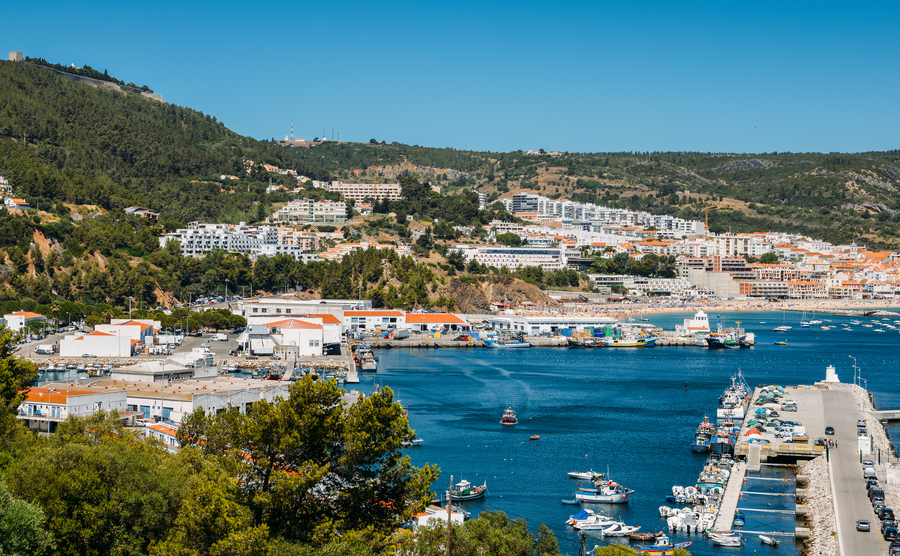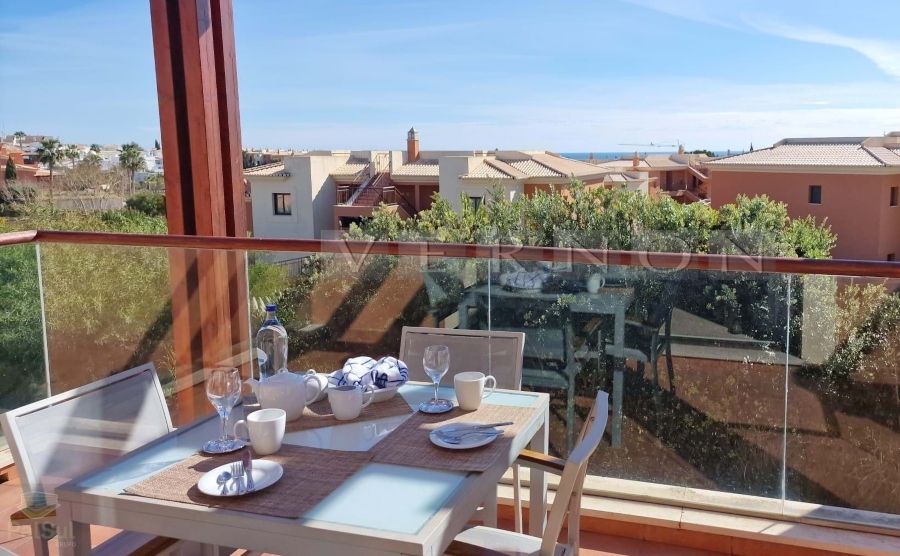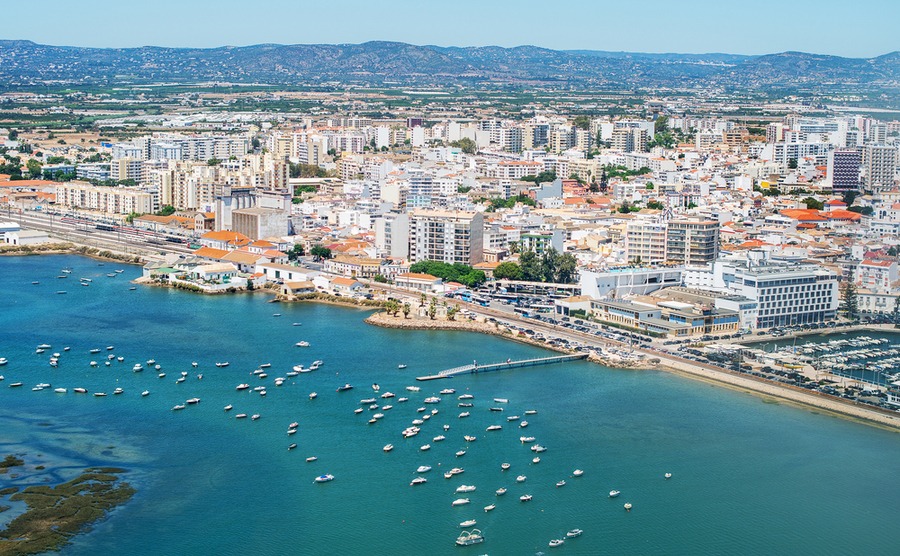Many of the trends that currently dominate the property sector are felt on a global scale. The Portuguese property market is certainly exhibiting symptoms that will seem familiar to people in the UK and even as far afield as the US and China.
However, in many ways, the Portugal property market shows a certain resilience. In fact, in some areas – such as the Algarve and Setúbal – there was a recorded increase in property prices between the first two quarters of 2023.
Overall, the picture is nuanced and – as in many countries – area specific. In this Portugal property market update, we look at all the latest news to paint a better picture for aspiring buyers.

Sétubal landscape in Portugal
Affordability continues to impact residents
As is the case in the UK, Portugal has been experiencing problems with affordability for residents. Prices have rocketed in recent years. Despite recent falls in certain areas, many people are struggling to find homes due to a perfect storm of high-interest rates and low supply.
A recent study by the Francisco Manuel dos Santos Foundation brings reality into sharp focus. It found that the average deposit for a house in Lisbon has risen by 86% in the past five years.
The government is working hard to take proactive steps to rebalance the market, with its Mais Habitacão (More Housing) program. This contains a raft of measures to control the explosion in Airbnb-style rentals, give more rights to tenants, and incentivise the creation of affordable housing.
However, the initiative’s journey through government bureaucracy has been far from smooth. It was recently returned to parliament for further tweaks after being vetoed by Marcelo Rebelo de Sousa, Portugal’s President of the Republic.
Uncertainty around the Mais Habitacão bill seems likely to be contributing to a market that was already weakening somewhat.
Find homes in Portugal via our property portal.
Activity slows
Recent figures from the Royal Institute of Chartered Surveyors showed a notable drop in activity in the Portugal property market. (The monthly RICS study gathers data from estate agents and developers in Portugal). The June study showed falls in new buyer enquiries, agreed sales, and sales expectations.
There is, of course, a strong argument that this represents a shift towards a “buyer’s market”, as is being seen in many countries. Cash buyers and those in a position to proceed could find bargains and opportunities.
Expectations for the near future are less negative. However, some price correction is anticipated.
Price predictions
Predicting property price movements in uncertain times is a fool’s errand at best. However, it’s worth noting that year-on-year, house prices in Portugal remain up by 6.2%, despite recent falls. Supply remains extremely tight.
As a result, there’s no suggestion that a big “crash” is imminent. Ricardo Guimarães, Director of Confidencial Imobilário, said “Expectations for the near future are less negative. However, some price correction is anticipated.”
It’s here that the story becomes both area and property-specific. Lisbon apartments with two and three bedrooms have shot up in value in recent years, and have been at the forefront of the debates around Airbnb and local affordability. Such properties dropped in price by 11% in the last quarter.
However, similar homes in Setúbal, Leiria, Coimbra and the Algarve increased in value in the same timeframe. This proves, as is often the case, that there’s no single property market, but many small and localised markets instead.

Sea views from an apartment in Lagoa, Faro
The rental market
One part of the Portuguese property market where supply and demand are particularly heightened is the rental sector. Agents continue to see a rise in tenant demand and a simultaneous drop in new landlord instructions. This is a picture that will be familiar to anybody in the UK and – unsurprisingly – leads to steadily rising prices.
Uncertainty around Mais Habitacão is likely further fuelling this problem. The strong demand for rental property offers a huge potential opportunity for investors. However, Portuguese legislation seeks both to incentivise landlords to rent to residents (instead of tourists), and to keep rents affordable. The devil is in the detail of such initiatives, and some investors will likely hold off until the smoke clears.

Faro: The sand is still within easy reach, but so is the atmosphere of a small, authentic city.
A new property hotspot?
The past decade has seen Lisbon emerge as a tech hub, and Porto follows in its footsteps as a desirable beacon for digital nomads and entrepreneurs. Is Faro, the Algarve’s low-key capital, set to be the next city to emerge as the place to be for overseas residents?
Faro mayor Rogério Bacalhau was recently interviewed by The Portugal News. He discussed the prospect of “IT companies” basing themselves in Faro and revealed plans to build three more hospitals in the city. He emphasised that investors can expect to have projects approved in Faro in a fast time frame.
Browse properties for sale in Faro, today
Faro has often been overlooked, with many tourists merely passing through the airport on the way to one of the Algarve’s well-known resorts. Increasingly, visitors and expats have learned of its charms. Perhaps it won’t be long until businesses do the same. For investors and aspiring homeowners alike, it’s one to watch.
If you’re thinking of buying a property in Portugal, find our free guide here.
SOURCES: Leitor journal economico, Leitor journal economico, The Portugal News, Royal Institute of Chartered Surveyors, The Portugal News











